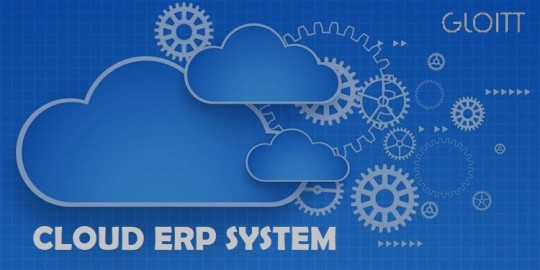Photo

Upgrade to cloud ERP System in order to achieve a new layer of security to ERP installations and a reduction in long-term hardware purchase and maintenance costs.
0 notes
Photo

At Gloitt, we empower people and organizations to work together more efficiently with SAP solutions and to use business insight more effectively, and thus to stay ahead of the competition.
0 notes
Text
Importance of ERP in Textile Industry
The textile industry has come a long way from depending heavily on labour to now being reliant on technology for design and development. With every passing year the focus is shifting increasingly to being more and more digitally driven. For this, the industry requires the best ERP solutions which are scalable and robust, to be able to grow, thrive, and deliver like never before.

ERP or Enterprise resource planning is a comprehensive software required by organizations for management of day-to-day pursuits like planning, sales, finance, reporting, inventory management, data management, and much more. With proven expertise in 25 industries, SAP’s solutions are acknowledged as the best ERP internationally, for all verticals, to improve overall operational efficiency. It comes as no surprise therefore that SAP has always topped the list of ERP software vendors with the largest market share proving it to be the consistent leader in the business software market.
Why SAP Solutions for Textile Industry?
Textile industry has various pain points like dye stock management, workforce coordination, maintenance of machines, and SAP solutions can help overcome these barriers and grow the textile business multi-fold in the following ways:
Companies can carry out stage wise/bundle wise WIP tracking (i.e. cutting, sewing, washing, drying, ironing, etc.).
Companies can have an instant access to all the information in real-time which can help them to provide reports on all aspects of business operations.
Companies can effectively handle inventory level, items, price lists, special price agreements, and transfers between different warehouses, and inventory transactions via integrated processes like sales and purchasing.
A lot of time can be saved in processing information based on data transfers between the branches, factories, or head office in this system.
Companies can achieve high customer satisfaction through streamlined order configuration and timely deliveries.
Errors and duplicacy of data can be avoided that can help to increase the expertise of the company.
Companies can have a better customer relationship by having a unified Customer Relationship Management (CRM) system as it can help in keeping constant touch with the customers.
Also, Read: Ace the Challenges of Chemical Industry Together with SAP and Gloitt
1 note
·
View note